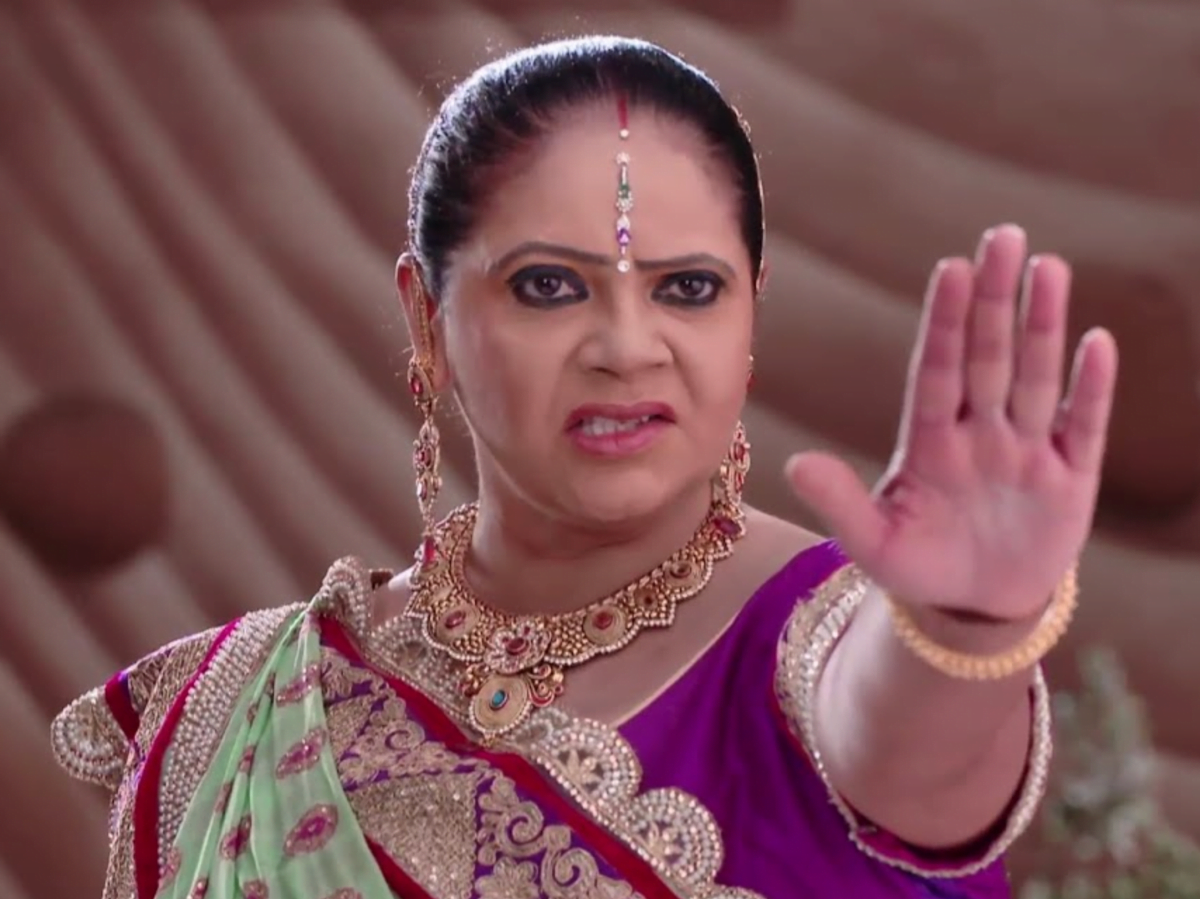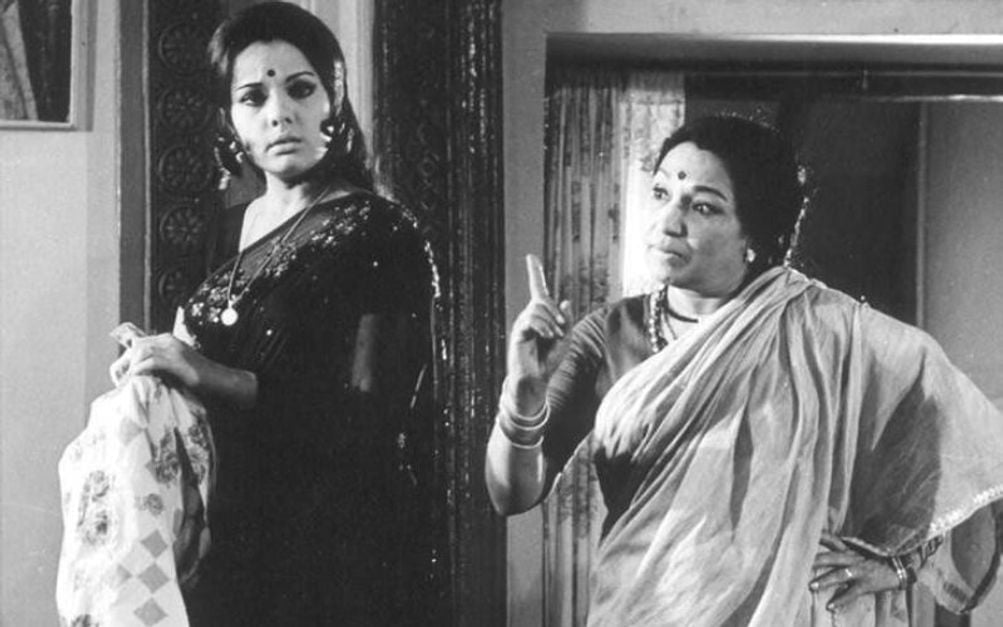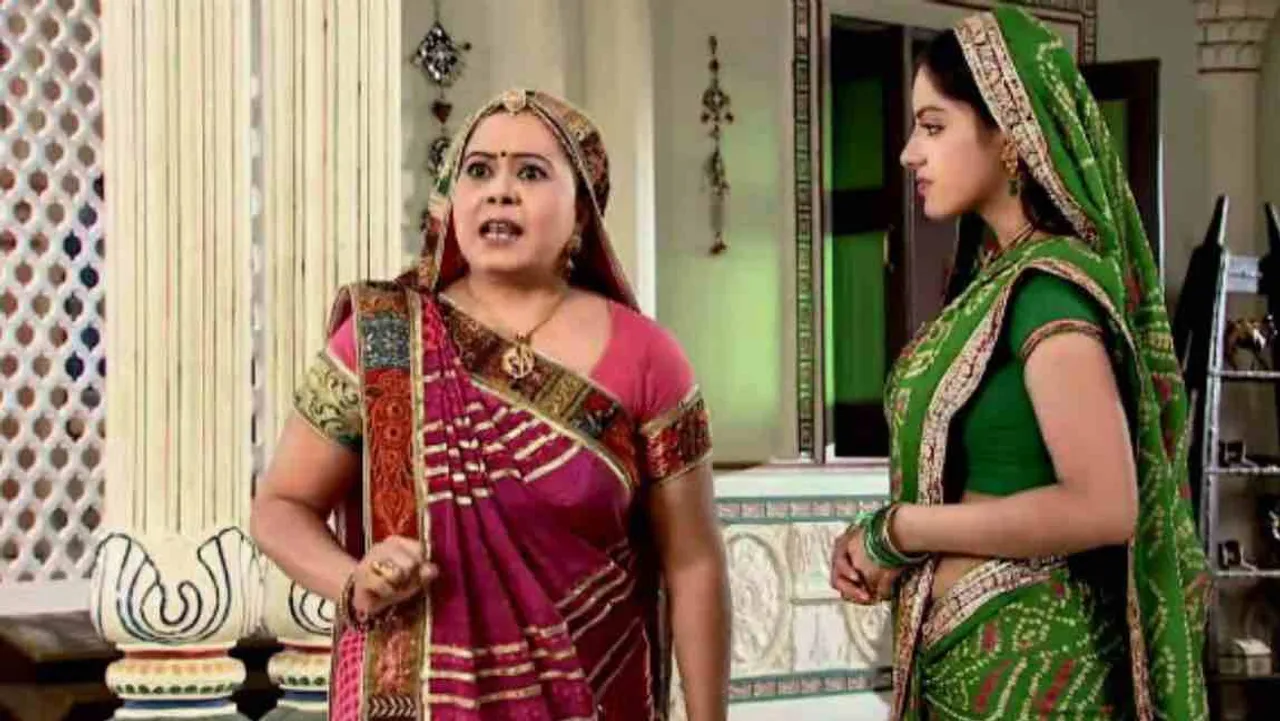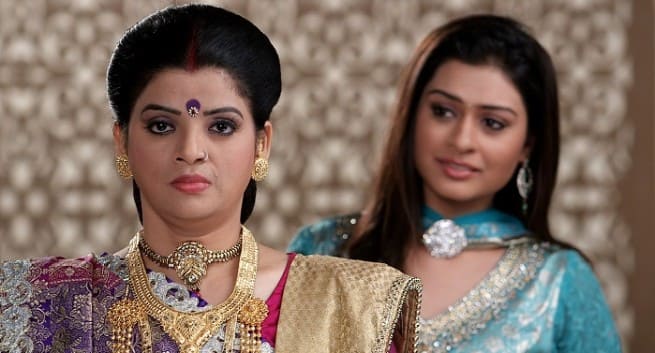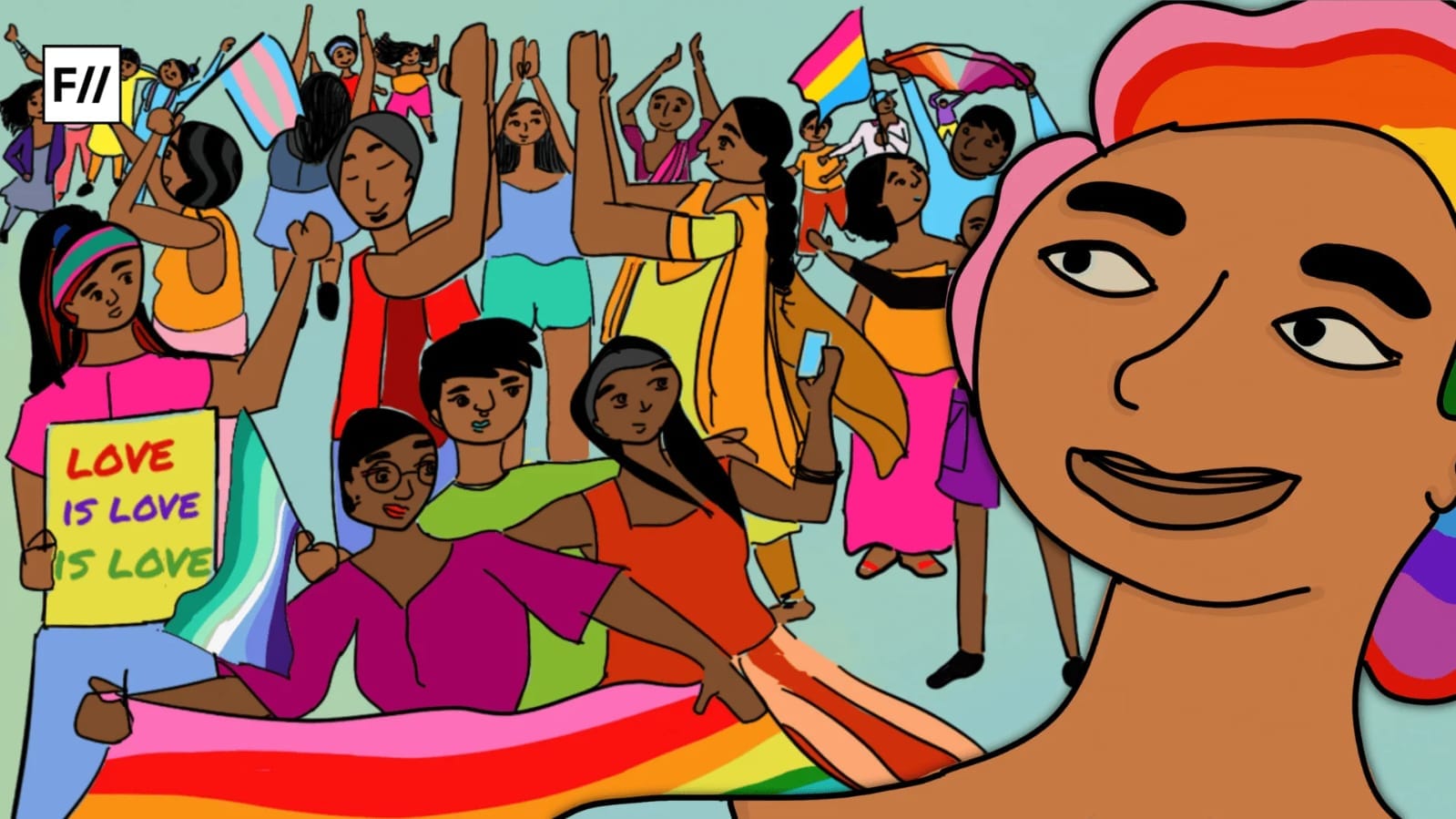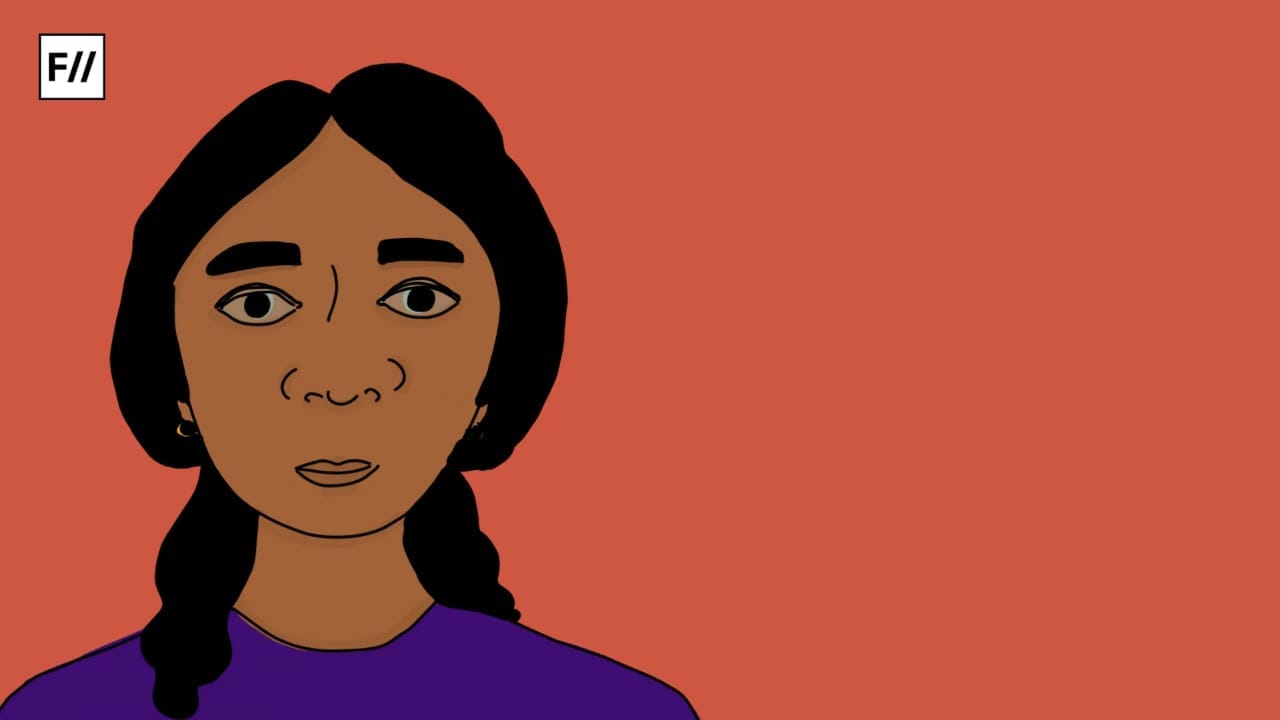Every Indian household fears a figure called the mother-in-law, who is almost always depicted as a vile and wicked person that seeks revenge from her daughter-in-law for all the wrongs that happened to her in the past, thereby passing on the legacy of generational abuse and trauma. Often, Indian mothers-in-law are reduced to just a quintessential monolithic stereotype by the patriarchal society which ignores the multiplicity of diverse identities that exist within this demographic. In the film Biwi Ho Toh Aisi (1988), the filmmakers depicted Bindu as a classist, sexist, and manipulative mother-in-law whose main objective was to frame her daughter-in-law (Rekha) for stealing in order to get rid of her. But have we ever questioned why, in our lives, a mother-in-law is constantly portrayed as a wicked figure?
For centuries, women’s only agency came from managing the home. It became the one place where their opinion mattered and they could truly express themselves. At an early age, they were taught how to take care of the home and live upto the expectations of the in-laws. After the daughter-in-law moves in, the mother-in-law frequently becomes more protective of the house, asserting her power within the family aggressively. Giving up control over the one thing they were in command of is difficult which results in constant conflict between the mother-in-law and the daughter-in-law.
The mother-in-law’s internalised patriarchal values
While we wonder if the mothers-in-law should be held accountable for her resentful behaviour, we must remember that women from the earlier generation have internalised misogyny due to the years of patriarchal exploitation they went through which included them being expected to adhere to conventional gender stereotypes. They were frequently taught by their mothers to unconditionally respect their husbands, obey their in-laws, and run the home well. The generations before us were frequently coerced into traditional social roles against their will.
More than often mothers-in-law don’t “permit” or “approve” of their daughters-in-law’s desire to continue their jobs after marriage. The fact that the new-age woman does not want to spend her time at home as much as the older woman did during her time as an obedient daughter-in-law irks the mother-in-law.
Mothers-in-law expect that their daughters-in-law will carry on the same pattern by taking care of their mothers-in-law so that the latter can make up for all the abuse she had endured in her life which ultimately leads to the daughter-in-law becoming resentful of her mother-in-law’s lack of empathy and constant nagging. They treat their daughters-in-law poorly and hold them to the same high standards that they themselves had faced and continuously set an imaginary bar so high that the daughters-in-law can never reach it, no matter how hard they try. This is a result of their internalised misogyny which has started to seep into their minds.
Even if the mothers-in-law claim to be progressive by “allowing” their daughters-in-law to work after marriage, they continue to impose subtle conditions – to wear only conservative clothes, to be back home early, to manage the household even after returning from work and so on.
In the case of Indian mothers-in-law, they feel if they have suffered, then their daughter-in-law should suffer too
Without a doubt, people become the person they despise or they unintentionally or intentionally adopt their toxic attitudes. In the case of Indian mothers-in-law, they feel if they have suffered, then their daughters-in-law should suffer too. These women have come to understand that when someone has a dominant and strong personality, they are respected and feared by others. To receive the same level of respect, they replicate what they have themselves been the victims of. Whether it is a mother-in-law or a daughter-in-law, both are oppressed by a terrible cycle that has persisted through generations.
The mother-in-law’s gendering of basic household skills
From early adolescence, a girl is taught how to prepare round rotis, make tea, sweep and dust the house, and handle some household chores. However, it was not taught so that she could be independent but for her husband’s and her future in-laws’ benefit. If she does not live up to these seemingly simple household expectations, what would her future mother-in-law think?
The 2014 film 2 States depicts what happens to women in inter-cultural marriages through Kavita Malhotra (played by Amrita Singh) admonishing Ananya (played by Alia Bhatt), who doesn’t know how to cook and comes from a different culture. She taunts Ananya endlessly and attempts to get Krish (played by Arjun Kapoor) to move away from her.
Women were historically not taught how to communicate their needs, build an emotional bond, or have tough but necessary conversations and boundaries
Women were historically not taught how to communicate their needs, build an emotional bond, or have tough but necessary conversations and boundaries. Instead of being given the freedom to develop an emotional bond with their husbands & in-laws, they were forced to be accountable for everyone and everything – be it their husband’s bad mood, that one broken chair in the dining room, or the lack of sugar in the tea. Patriarchal culture has long dominated the lives of women.
Being oblivious to gender-based injustice
Indian mothers often attempt to justify abuse and neglect. They ignore it, saying how women are born to endure and persevere. When their husbands or sons exhibit violent and aggressive behaviour, they attempt to negate and trivialise such abuse which normalises and fosters the stigma around domestic violence. Believing that someone deserves to be oppressed is the simplest way to perpetuate oppression. This begins at a young age when women are taught that it is their duty to keep the family together, make the in-laws happy and obey their husbands.
In our culture, mothers have a tendency to excuse their sons’ bad behaviour. For this reason, their sons grow up to be irresponsible and dominating adults who regard their wives as insignificant beings. According to them, hitting their wives is totally acceptable because as per their situation and upbringing, physical violence is important to discipline wives and an acceptable expression of their anger.
In our culture, mothers have a tendency to excuse their sons’ bad behaviour.
In the film Thappad, Sulakshana (played by Tanvi Azmi), the mother-in-law of Amrita (played by Tapsee Pannu) emphasises that mothers are equally responsible for the mindset and behaviour that men tend to exhibit. She supported her daughter-in-law’s demand for a divorce when Amrita’s husband hit her during a party out of a petty rage, as she (Sulakshana) had also been in a violent and disrespectful relationship.
Women may internalise patriarchal language which claims that women are not as powerful, capable, or competent as men. Because they have been raised to believe that they are inherently in need of protection from men, women who support patriarchy accept their own inferior place within it.
Breaking the misogynistic cycle of abuse
One of the hardest relationships to handle is the mother-in-law/daughter-in-law dynamic, yet resolving this conflict is essential to a peaceful coexistence. Often daughters-in-law ignore the nuances of patriarchy and instead become resentful of their mothers-in-law for adhering to and expecting them to conform to predetermined gender norms, forgetting that this is what the mothers-in-law were raised with and were compelled to internalise. The truth is that we should all become knowledgeable about how India’s integrated patriarchy has fostered a myth of the strict/cruel/wicked mother-in-law for its own benefit and eventually thrives on creating conflict between women.
Unlearning internalised misogyny requires acknowledging that everyone is exposed to the sexism that exists around them. The Saas-Bahu serial that gave rise to the clichés about mothers-in-law and daughters-in-law that are ingrained in our collective consciousness ought to be revised. No one will be able to fully understand women’s anxieties and fears more than women. Therefore, it is imperative to come together with other women around us to break the cycle of abuse once and for all.

